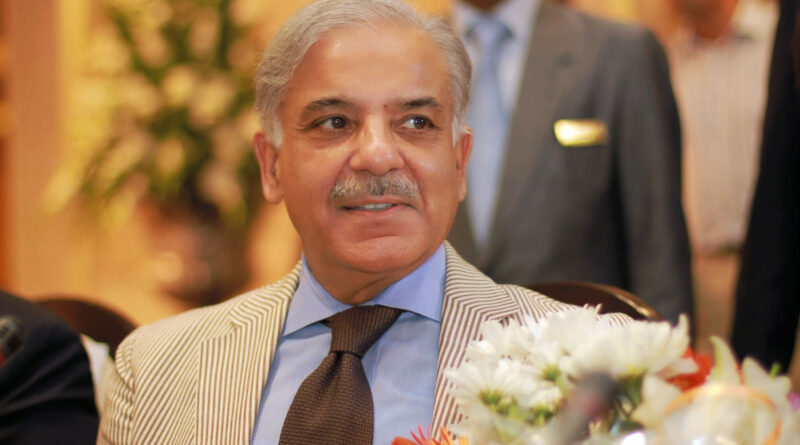Pakistan’s Unexpected New Prime Minister
Pakistan Prime Minister removed in a vote of no-confidence after a constitutional crisis
Key Actors:
- Imran Khan; Pakistan’s Previous Prime Minister
- Shehbaz Sharif; Pakistan’s Newly elected Prime Minister
Background Information
Pakistan has had a historically turbulent government; no Prime Minister in its almost 75-year history has ever completed a full five-year term. In this regard, former Prime Minister Imran Khan is no different as he was voted out in a vote of no-confidence on Saturday April 9th after being Prime Minister for 2 years and 234 days.
Former Prime Minister Khan was originally a cricket star and by winning the world cup, he became a hero amongst Pakistani youth. His image in the youth enabled him, in 1996, to become a politician with a sizable but moderate following. That is, until 2018, when, after a successful anti-corruption, pro-independence and economic development campaign, he captured the popular sentiment and was voted to be the next Prime Minister of Pakistan.
After the election, He was seen as a new beam of light for, as Al Jazeera stated, he was the first Pakistani politician to become Prime Minister who was not in the two Pakistani political dynasties. However, the promises that he made gradually sapped away his popularity as the Pakistani economy was deteriorating instead of recovering as he foretold. Tremendous old debt coupled with new debt from irresponsible spending lowered the Pakistani Rupee value, causing double digit annual inflation and a decrease in the prosperity of the citizens’ lives. The economy is poor to the point where food is a concern in many voter’s lives (Al Jazeera). The pandemic is another factor for economic downturn, and though Khan could not control it, people still relate the consequences of it to his term.
Additionally, his appearance of political independence also broke down as the military most likely brought him into power in 2018 after being discontent with the two other political parties. both the military and Khan have denied these allegations (BBC). That doesn’t mean, however, that Khan’s old ally, the military, an incredibly powerful institution in Pakistan, is still supporting him as his policies of going after the public opinion has alienated their relations.
What Happened
These factors combined caused an increasing opposition to grow against him, and eventually, with enough members joining and enough members defecting from one side to the other, the opposition gained the majority, thus calling a vote of non-confidence against Khan.
Instead of responding democratically, Khan accused the opposition of being controlled by foreign powers, namely the USA, and dissolved parliament to stop the voting. As Khan dissolved parliament during a vote of non-confidence, he violated the Pakistani constitution and caused a constitutional crisis. The opposition then brought the question of Khan’s abuse of power and Pakistan’s constitutional crisis to the Supreme Court, demanding and succeeding in having a revote that Saturday, on April 9th.
Predictably, the vote passed with a majority in favour of dislodging Khan as Prime Minister, so Shehbaz Sharif was brought to quickly replace him.
Khan, however, is still trying to hold onto power by inspiring mass protest against this new government, accusing the opposition leaders of meddling with foreign powers and vying his youthful, energetic supporters to fight for a free Pakistan.
On Pakistan’s New Prime Minister
Shehbaz Sharif was born into one of the two major political dynasties of Pakistan and his brother was the Prime minister of Pakistan for five year between 1990-1993 and 1997-1999 (Al Jazeera). Pledges to support the economy and to increase living standards have also been made, though the future of these statements remain uncertain. Nevertheless, the stock market is responding well to this increased political stability, so some short term benefits will be seen.
Almeida, Cyril. What Led to Leader Imran Khan’s Downfall in Pakistan? https://www.aljazeera.com/news/2022/4/9/analysis-end-of-imran-khans-term. Accessed 12 Apr. 2022.
Baloch, Shah Meer, and Hannah Ellis-Petersen. ‘Pakistan Court Orders Imran Khan Confidence Vote to Go Ahead’. The Guardian, 7 Apr. 2022. The Guardian, https://www.theguardian.com/world/2022/apr/07/pakistan-top-court-orders-vote-on-imran-khan-to-go-ahead.
CNN, Sophia Saifi and Rhea Mogul. ‘Pakistan Prime Minister Imran Khan Voted out of Office’. CNN, https://www.cnn.com/2022/04/09/asia/imran-khan-voted-out-pakistan-prime-minister-intl-hnk/index.html. Accessed 12 Apr. 2022.
‘Imran Khan: What Led to Charismatic Pakistan PM’s Downfall’. BBC News, 9 Apr. 2022. www.bbc.com, https://www.bbc.com/news/world-asia-61047736.
Who Is Shehbaz Sharif, Pakistan’s New Prime Minister? https://www.aljazeera.com/news/2022/4/9/who-is-shehbaz-sharif-seen-as-frontrunner-for-next-pakistan-pm. Accessed 12 Apr. 2022.
Zaman, Q. Imran Khan’s Fall: A Story of Political Hope Turned to Despair. https://www.aljazeera.com/news/2022/4/10/imran-khans-fall-a-case-of-hope-turned-into-despair. Accessed 12 Apr. 2022.
—. Shehbaz Sharif Elected as Pakistan’s New Prime Minister. https://www.aljazeera.com/news/2022/4/11/shehbaz-sharif-elected-as-pakistans-new-prime-minister-2. Accessed 12 Apr. 2022.
—. Shehbaz Sharif Elected as Pakistan’s New Prime Minister. https://www.aljazeera.com/news/2022/4/11/shehbaz-sharif-elected-as-pakistans-new-prime-minister-2. Accessed 12 Apr. 2022.
https://sm.mashable.com/mashable_in/seo/default/shehbaz-sharif-1-copy_sukm.jpg

